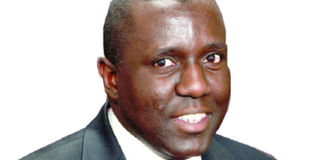Lockdown, superspreader events shred Covid policy

For four months since the January general election, there has been apprehension on whether the Covid-19 situation would dictate a further lockdown.
Tanzania has just buried its former president John Magufuli whose official cause of death was heart disease but whose demise is blamed on an upsurge of Covid-19 cases or other factors at the beginning of the year. Next door, Kenya went into a lockdown in major urban areas and barred inter-county travel as Covid-19 cases sharply rose on the back of campaigns to table a referendum and formalise Kenya’s dime a dozen power sharing arrangements into a new constitutional order. Kenya post 1992/ post 2007 clashes that brought the country to its knees after heavily contested elections has decided it better rotate its key leadership positions among its big and not so big ethnic groups. Recently, a panel of the High Court sitting as a constitutional court poured water on the entire idea stating that constitutional reforms must start in the National Assembly.
Back to Covid-19, in Tanzania, cases kept on rising until clerics led by Catholics pleaded with government that the virus was eating into their flock and religious leaders. It is not a big secret in Uganda that leaders of the flock have been hemmed in by Covid, information that could easily become sacrilegious if disclosed openly. Actually just like in Kenya and Tanzania where Covid-19 has plucked politicians at will, Uganda is not very different.
Two big superspreader political events have been blamed in the recent upsurge of Covid cases even though this may be unfair. Shortly before the swearing-in of Parliament, the ruling party engaged in a tense week-long team building event at the National School of Political Education in Kyankwanzi where its preferred candidate (and now Speaker) Jacob Oulanyah was unpackaged before his caucus members most of whom were newly elected and delivered the goods pushing aside former Speaker Rebecca Alitwala Kadaga.
The swearing-in of new Members of Parliament is also blamed although the swearing-in was staggered over a number of days and little was allowed in the form of convoys etc. that marked the general election campaign where presidential candidates were often tugging at security as they protested being restrained from reaching their voters. Everyone remembers Mr Patrick Amuriat Oboi, FDC president running part of the race barefoot after arriving for nomination barefooted in another scuffle with police, incidents that gained him notoriety but led his party to a drubbing at the same polls.
Then after Ugandans were served big meals, came the grim reminder of Covid-19. First, Uganda has barely been able to vaccinate just 700,000 nationals out of a target of five million.
Second, the absence of testing prior to vaccination drives has created complications as the vaccine antibodies have “woken” up Covid-19 sleeper cells Ugandans stored up during the so-called herd immunity drive of the first lockdown last year. Then Covid-19 became normal. International travelers could simply waive the inconvenience of what should be a mandatory test and inoculation at ports of entry by fidgeting a $50 note to those in charge of manning the borders. Somehow it became cheaper to buy the stamp in your passport rather than the stand the inconvenience of being tested and waiting for your results. This time the deadly variants (India, Vietnam) and others yet to be named have come in leaving government officials in a state of confusion.
First, government has opted for further superspreader events “dispersing” the risk to the countryside where healthcare facilities may even be more vulnerable than the rickety urban healthcare infrastructure. One caption shows Uganda’s ICU bed capacity doubled from 100 to 218 (most of this increase was at the Mulago National Referral Hospital) in the last one year and another steep rise was recorded in High Dependency Unit beds. City residents, especially in the east of the capital where housing stock has trebled and condo for sale signs compete with bristling slums have become a hotbed for Covid.
Government wary of new cases from a prior non-suspect population young children opted to close schools sending youngsters home to try their luck. In fact, some parents got off worse after paying fees in January 2020, paying again in May/June 2021 only for the schools to remain closed.
You will sympathise with the President at these kind of moments. A centralised (donor-centric thinking) has the illusion that countries like Uganda can even come close to mass vaccination. That’s not possible, all things considered. Second what is available here is of dubious efficacy, new cases are being recorded even among those already vaccinated. These and other questions can possibly bring the country to a halt.
Mr Ssemogerere is an Attorney-At-Law and an Advocate.




